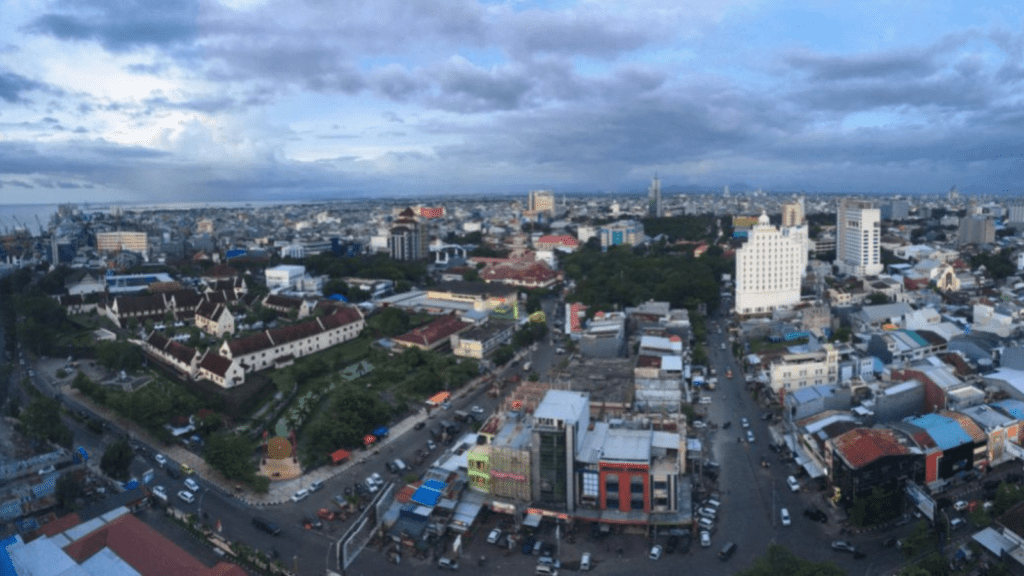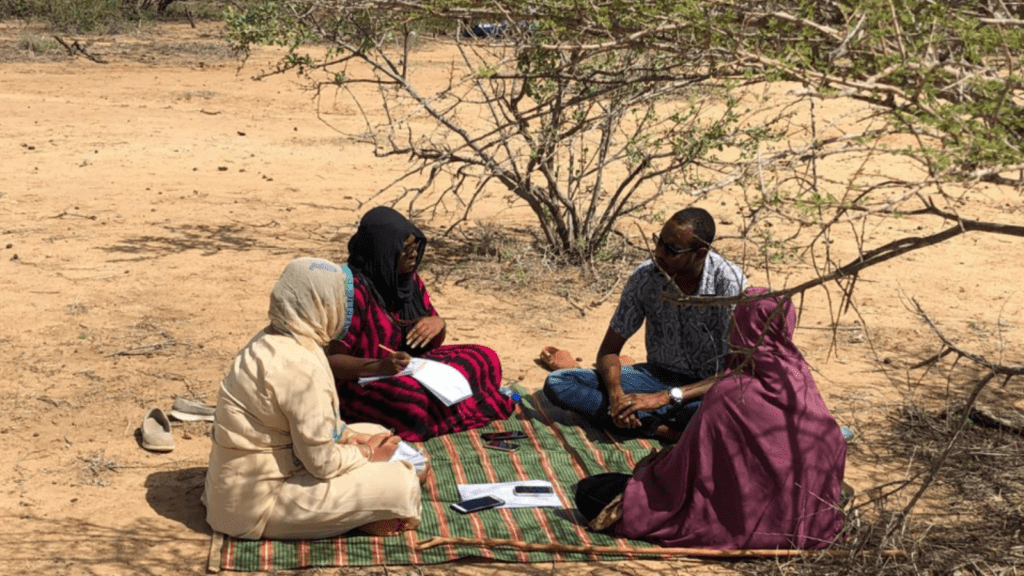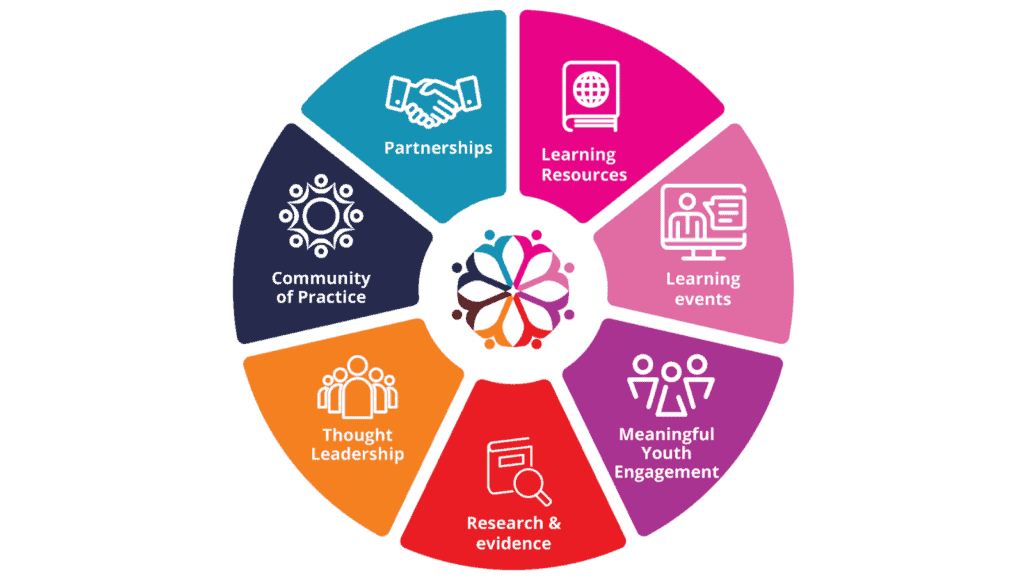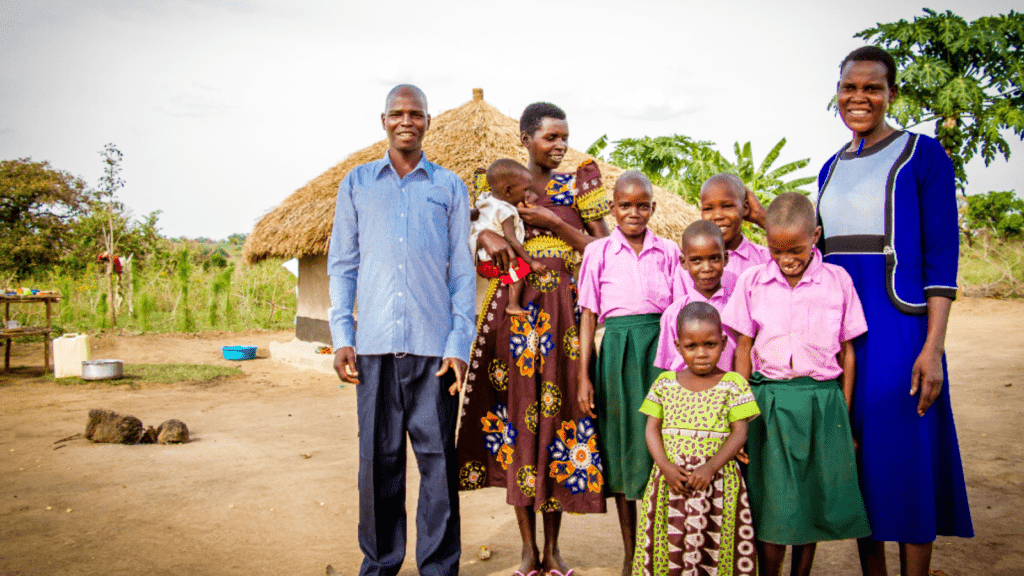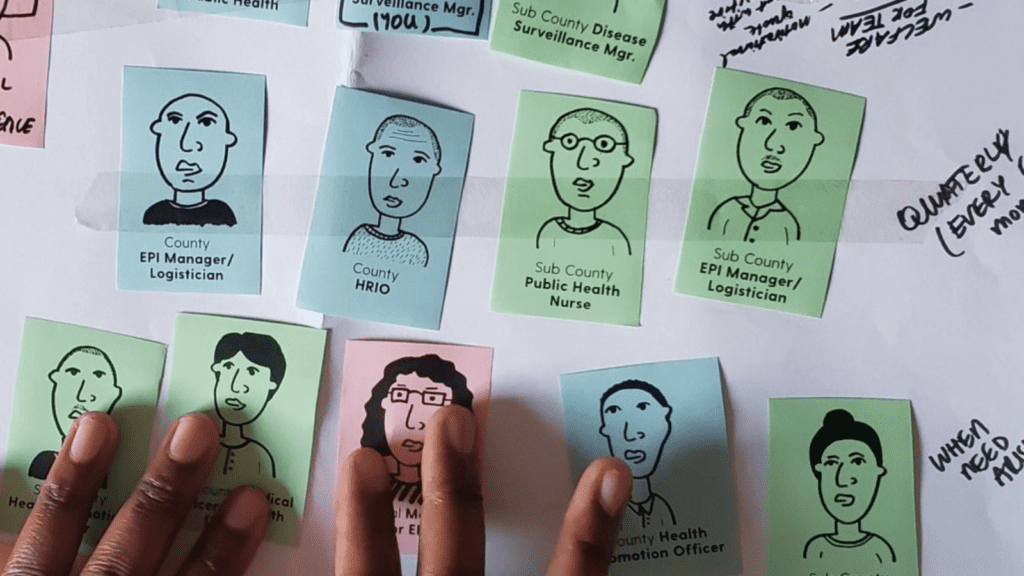JSI works with individuals and communities to package insights into user-friendly formats so that teams can prioritize and align them with their goals. We couple this with a facilitation approach that recognizes and leverages differences between participants’ lived experiences, areas of expertise, agency, and perspectives. The result is better solutions.
To create a cycle of learning, ideation, and experimentation, we focus on moving from the abstract to the concrete — identifying underlying assumptions, mental models, and hypotheses — and using visualizations and prototypes that allow us to collectively test and refine solutions. Some of the techniques we use include journey and system mapping, framing challenges into opportunities (“How might we…?”), root cause analysis (“5 Whys”), storyboarding and low-fidelity prototyping, and rapid testing with users, among others.
Infographic courtesy of the USAID-funded Building Healthy Cities Project






